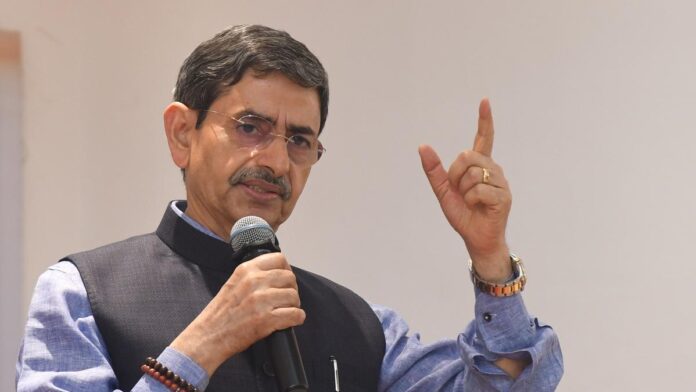
Tamil Nadu Governor R.N. Ravi. File
| Photo Credit: R. Ragu
Three months after a face-off between Governor R.N. Ravi and Chief Minister M.K. Stalin, Tamil Nadu is witness to yet another confrontation between them.
In January, the Governor skipped some portions of the approved text of his customary address to the House. When Mr. Stalin disapproved of this deviation from the text and moved a resolution to take on record only the transcript distributed to the members, Mr. Ravi, in an unprecedented move, walked out of the Assembly.
This time, Mr. Ravi’s explanation of the role of a Govenor in the functioning of a legislature paved the way for the controversy. The Governor made the comments during his interaction with a group of civil servants at the Raj Bhavan on April 6. There was nothing wrong in the fact that Mr. Ravi articulated the constitutional position regarding the role of the Governor, but his interpretation, which was viewed against the backdrop of his relationship with the Dravida Munnetra Kazhagam (DMK) regime, created a strong response not only from the ruling party but also its allies. Soon after, on Monday, the Assembly adopted a resolution calling upon President Droupadi Murmu and the Union government to give appropriate instructions to the Governor for according assent to Bills passed by the Assembly within a specific time period.
Mr. Ravi’s point was that if a Governor withheld assent to a Bill passed by the Assembly, it meant that the “Bill is dead.” This interpretation did not go down well with the ruling dispensation because about a dozen bills passed by the current Assembly were pending with Mr. Ravi for assent. It is against this backdrop that two pieces of legislation — exemption to students of the State from the National Eligibility-cum-Entrance Test, and the Prohibition of Online Gambling and Regulation of Online Games Bill — deserve a mention.
As both the bills were returned by Mr. Ravi in the last one year or so, they were re-adopted by the House. While the first is awaiting presidential assent, the news of the second bill having received the Governor’s assent came out on the day the Assembly adopted the resolution concerning him. The time taken by Mr. Ravi to give his assent to the online gambling bill has evoked criticism from several quarters as he cleared an ordinance on the same subject last October. The government’s case had been that except for the word “bill,” the piece of legislation was an exact reproduction of the ordinance.
The Monday motion, floating the idea that the Governor be instructed to give his assent within a prescribed time period, was, however, not as harsh on the present occupant of the post as it was on the Governor 28 years ago. On April 26, 1995, when the All-India Anna Dravida Munnetra Kazhagam (AIADMK) was in power, the House passed a resolution demanding that the Centre recall Governor M. Channa Reddy and replace him with another person after “prior consultation” with the State government. It also wanted the Union government to ensure that the person so appointed “is not partisan and is respected by” citizens of the country for his integrity in public life.
At the time of passage of the resolution on Monday, the AIADMK, the principal Opposition party, was not present. Its members, citing Speaker M. Appavu’s non-acceptance of their demand for recognising former Revenue Minister R.B. Udhayakumar as Deputy Leader of Opposition, had earlier staged a walkout. Even two members of the Bharatiya Janata Party (BJP) left the House prior to the adoption. The motion was adopted unanimously. The former Fisheries Minister and the AIADMK’s prominent spokesperson, D. Jayakumar, was quick to accuse the DMK of adopting “double standards” with regard to the office of the Governor. The DMK, which was calling for the abolition of the post, had, while in the Opposition, approached Governors to make representations against the government of the day, Mr. Jayakumar argued.
With the passage of the resolution, the latest row concerning the two constitutional authorities is expected to come to an end. While the Governor could desist from creating the impression that he is needlessly provocative, the ruling party would do well in exercising greater restraint while responding to him. After all, the members of the ruling party will have to approach the people again for electoral support, unlike the Governor.
#Tamil #Nadu #resolving #recurring #conflict
